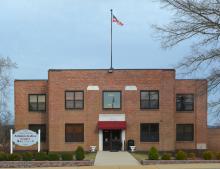Houston, Missouri, Forging Ahead with Fiber
In the spring of 2019, Houston, Missouri, sent out a call to citizens to share their thoughts on whether or not they'd like to subscribe to Internet access from a municipal network. Less than a year later, the city of around 2,000 people has forged ahead and has hired an engineering firm to begin work on their multi-phase fiber optic project.
Phase One is a Go
Economic Development Director in Houston Rob Harrington says that the city hopes to have the first phase — an eighteen-mile fiber ring that connects city facilities — completed and functional by the end of the summer.
Houston owns and operates a municipal electric utility, which is a big plus for communities interested in better connectivity through publicly owned fiber optic network infrastructure. The Houston Herald reports that the city’s electric utility has brought in additional revenue that, over the last fifty years, has contributed to public improvements in Houston. Houston is the seat of mostly rural Texas County, located in south-central Missouri; the community is about 3.7 square miles.
Another factor in Houston's favor: the city owns the utility poles, which will reduce make-ready time and reduce final cost. A feasibility study, which reported a favorable situation in Houston for a publicly owned Fiber-to-the-Home (FTTH) system, suggested all but about three miles of the first phase of the infrastructure could be deployed on poles. Sewer lift stations, water towers, and other city facilities will connect, which will allow Houston to reduce telecommunications costs. The city will use reserves to fund the first phase of the project.



